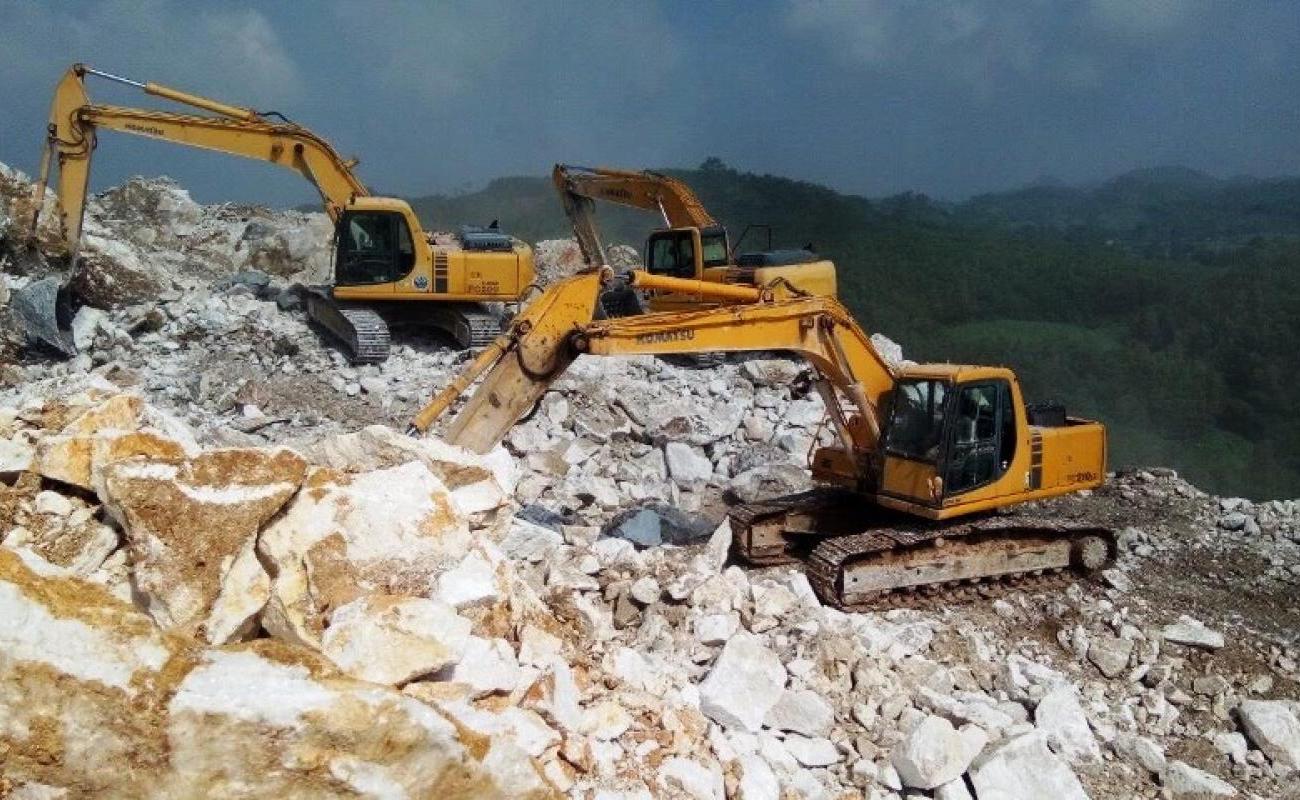The EU Critical Raw Materials Act aims to reduce dependence on China

The European Commission presented the Act on Critical Raw Materials, which will try to reduce dependence on China. Goals were set and an international "club" of partners in this endeavor was established.
The European Commission presented the Act on Critical Raw Materials with targets for the production, refining and recycling of key raw materials necessary for the green and digital transition.
The Critical Raw Materials Act marks another step on the EU's path to a new direction for reindustrialization and a competitiveness agenda, after a year marked by high energy prices, disruptions in distribution chains, and the implementation of the US Inflation Reduction Act (IRA).
Commissioners Valdis Dombrovskis and Thierry Breton said there was one key goal - reducing Europe's reliance on imports that often come "from quasi-monopolistic third countries".
Securing supply chains of critical and strategically important raw materials is also a crucial element of any effective green transition.
The demand for rare earth metals for wind turbines is expected to increase 4.5 times by 2030. Lithium, a key element for the batteries of electric vehicles and devices, will be 11 times more in demand by 2030, and 57 times by 2050, the EC estimates - and a very small part of the necessary amount comes from European mines.
The European Commission announced that it will set a series of clear, but voluntary goals that the EU must achieve by 2030. One tenth of strategically important raw materials (SRM) will have to be mined within the borders of the EU, and currently that percentage is only three percent.
The demand for rare earth metals is growing
At least 40% of the processing and refining of those materials will also have to take place in the EU, as opposed to the current "zero to 20 percent," Breton said. The recycling targets were set at 15%, which somewhat divided the opinions in the Commission.
"It's not ambitious enough, and we know we can do more," Breton told reporters, although it remained unclear why the percentage was not raised.
Even with voluntary targets, the Act gives freedom to economic actors who want to achieve those targets, not only in industry, but also in terms of financial institutions. Dombrovskis emphasized that "the European Union is not a planned economy".
At the heart of the document is the creation of strategic projects that would have easier financing and a simpler process of obtaining permits, and the Commission estimates that up to 20 billion euros are necessary for the growth of the raw materials sector.
Member countries will be encouraged to make maximum use of existing state aid frameworks, InvestEU funds will also be used, but private investors will also be players.
The current processes for obtaining permits are too long, Breton explained, and said that the goal is to cut the length of the process in half from the current five to two and a half years.
"Projects must contribute significantly to EU security, see the light of day in reasonable timeframes and be implemented sustainably," the document says.
The ultimate goal of these projects is to improve the EU's ability to provide critical and strategically important raw materials along the entire production life cycle. The Annex to the Act defines the list of metals that fall into these categories.
What are strategic and what are critical raw materials?
The Commission drew a clear distinction between the two types of material. They are strategically important in specific sectors, such as the production of microchips or batteries, which can be affected by global imbalances in demand and supply. There is also the problem of trade barriers with third countries that produce them.
Critical raw materials (CRM) are crucial to the wider picture of the EU economy, and also face risks of serious disruptions to the weakening chain.
The Commission acknowledges that the EU may still lack the infrastructure, skills and harmonized standards in the mining sector. In order to raise production throughout the bloc, a "large-scale skills partnership" is planned.
The EC's strategic priority is also the development of common European standards for exploration, extraction, refining and recycling of critical raw materials.
Reducing the EU's dependence on third countries
As the recently leaked document indicated, the EU's strategy is also to disengage from third countries, on which it currently depends. China currently controls much of the process of extracting and refining a whole range of raw materials, including magnesium and rare earth minerals. The Democratic Republic of Congo mines 63% of the cobalt that ends up in the EU, and this metal is extremely important for the electrodes of rechargeable batteries.
In the plan, the Commission sets a threshold of a maximum of 65% for imports of any strategically important material from a single country. Currently, that threshold is 70 percent.
But Europe cannot do it all alone. The act also provides for long-term cooperation with international partners, which the Commission called the CRM club. Countries that are consumers or rich in resources should make sustainable plans to invest in the countries that produce them, thus enabling them to move up the value chain.
"We cannot go to third countries and tell them to do the "dirty work" that requires mining and extraction. It is morally unacceptable," Breton emphasized.
The EU will work side by side with like-minded partners in an attempt to support local economic development and expand the industry from extraction to refining. This point is particularly relevant to the African continent.
"We need to help and improve the economic impact at the local level, which is not a move one would expect from China," Breton added.
Negotiations on the raw materials partnership between the EU and the United States of America should mark the beginning of the creation of this global club, as well as the recently concluded Free Trade Agreement between the EU and Chile.
